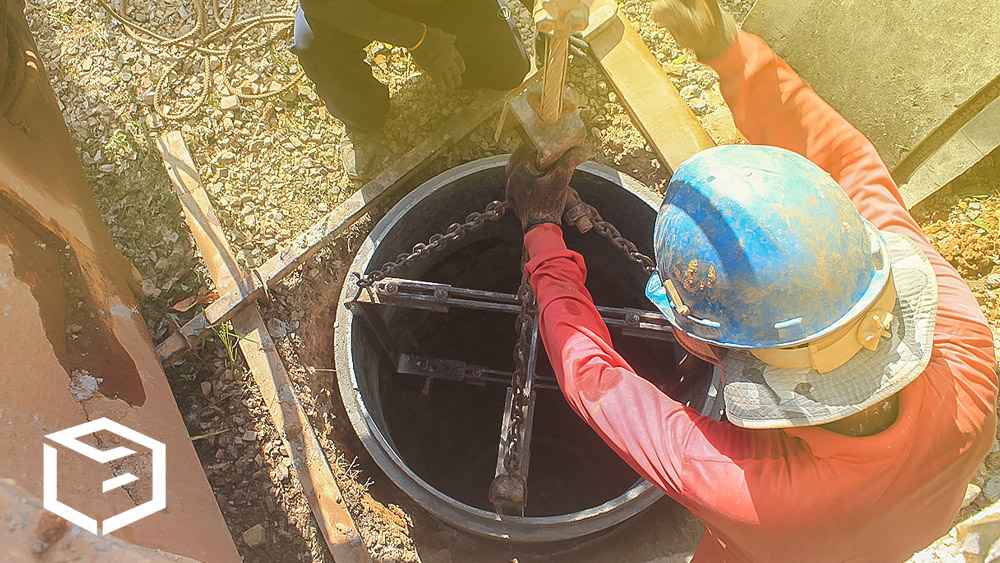
Groundwater makes up a significant portion of the Earth’s freshwater reserves. Located entirely underground, it consists of mostly-hidden aquifers that range from a few feet below the surface to 30,000 feet below the Earth’s crust. Currently, roughly half of the United States relies on groundwater for purposes that range from drinking and farming irrigation to livestock farming and industrial needs. Groundwater is highly vulnerable to human contamination.
Among the major sources of contamination for groundwater are pesticides and fertilizers that seep into the soil and reach the aquifer. Landfills include and sometimes produce ample amounts of chemical pollutants that run into the ground and if left unmitigated can cause problems. Livestock themselves can be a significant source of contamination due to the waste they produce. Leaky septic or storage tanks can cause bacterial and chemical pollutants to reach groundwater aquifers, causing illness for those that drink it.
Humans aren’t the only ones affected by contaminated groundwater as aquifers are often connected to freshwater sources that are open to the surface. Game and sport fish can thus carry the burden of contamination, causing humans that consume them to be sick in turn. Additionally, other game animals who drink polluted water can impart their illness to those who eat them.
Beyond contamination, humans can affect the level of groundwater aquifers through their activities and infrastructure. Pavement and non-porous surfaces that prevent water from penetrating will cause aquifers to shrink over time as well as over pumping.
Fortunately, geotechnical experts are available to assist property owners with performing an informed assessment of the aquifer and what risks there are for groundwater contamination, depletion, or surging. Once the risks or problem is identified, groundwater consultants at G3 Soilworks can detail solutions that will minimize the impact on aquifers.
The groundwater consultants at G3SoilWorks follow a three-part system to address potential problems for their clients. The first step is to “gather” as much information as possible about the situation to enable a fully-informed problem-solving or project development process. The second step is to “gauge” the information, which enables our consultants to develop a working hypothesis following engineering principles to mitigate impact and risk. Lastly, our consultants “go” forward with their hypothesis to test it using the Scientific Method. The last stage of the process is repeated as needed (following assessments and adjustments) until the desired result is achieved.
Contact us to maximize the productivity and profitability of your projects in Southern California today. We here to support you with our geotechnical and geological experience.
Follow, engage, learn. Stop by our blog to see what’s happening at G3SoilWorks.
G3SoilWorks – a full service geotechnical / engineering geologic consulting firm, is pleased to reach our third year. It has come with many interesting clients, assignments and obstacles.
G3SoilWorks
350 Fischer Avenue Costa Mesa, CA 92626
Tel. 714-707-3155
E. info@g3soilworks.com